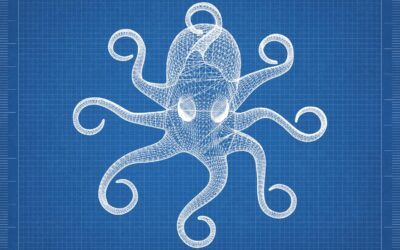In business, team players go unrecognized much of the time, yet they are the secret weapon that makes the difference between great players and great teams. You can often identify them by the questions they ask, instead of the questions they answer. They are constantly encouraging their teammates to think like they do and share their insights, asking questions like:
- What is your perspective on what we are doing?
- What are we missing?
- What leads you to think that?
- What are your concerns about that subject?
- Can you tell me more about this issue?
- What else do you know about this issue that I don’t?
- How do we prepare for what happens after?
Many times, these kinds of leaders need to be actively identified because they look very different from leaders in prior eras. They’re often mistaken for gofers or dilettante networkers. But this perception comes from a very valuable task they’re performing: making sure that the silos each have all of the information they need to coordinate, instead of telling them how to do their jobs.
Many organizations either passively or actively discourage this behavior in their managers. It makes senses to do that if your goal is to manage lemmings. But if you’re trying to evolve your organization into an octopus and create a future-proof culture, you need to do the opposite. You must:
- Flatten your organization.
- Make sure they have enough context to play the probabilities.
- Get your teams managing day-to-day coordination with each other instead of through you.
- Incentivize group performance on learning faster and the commander’s intent, instead of individual performance on the executional order.
How To Get Your Tentacles Working as a Team
To my mind, Steph Curry of the Golden State Warriors is the best team leader in the National Basketball Association. He’s charismatic. He’s a great shooter and a near-perfect athlete. But what his coaches and teammates say about him isn’t what you might expect when you think Superstar. All of them focus on what he does for others, rather than himself.
Assistant Coach Bruce Fraser says, “He’s definitely gone out of his way to try to get others involved, while sacrificing his own numbers.” This likely costs Curry millions in performance bonuses.
Teammate DeMarcus Cousins says, “He’s opened my game up. He takes all the attention away and lets me be me.”
Damion Lee, another player, talks about Curry’s intense empathy, saying, “Even if he hasn’t been in your shoes, he can try to put himself in your shoes. That’s huge.”
Teammate Draymond Green says, “He was keeping his finger on every single situation as opposed to coming in after something goes wrong.”
There are numerous anecdotes about Curry popping over to someone’s house to smooth the waters when things are rough, or showing up at a rookie’s house with barbecue from his wife’s restaurant to welcome him to the team.
While Curry is one of the greatest shooters in the game, what makes the Warriors win is the culture of trust and sharing on the team that he’s done so much to build. He doesn’t do it through KPIs or orders. He does it by example. After all, who wouldn’t want to be like Steph Curry when they grow up?
What we see in the example of Steph Curry’s leadership is a focus on values. It’s not what he does with the ball. It’s how he shares it. He doesn’t give up shots on net because he’s stupid. He knows that giving is what creates teams. He knows that teams win championships and that’s what creates real wealth.
You Can’t Wrangle an Octopus
In New Zealand, Rambo is a celebrity. Not the Sylvester Stallone character from the 1980s; Rambo is an octopus. She’s also one of Auckland’s most popular portrait photographers. The Sea Life Aquarium’s staff put a camera in her tank on a lark to see what would happen. What happened was she figured out how to take pictures of visitors.
This is interesting because octopods are not known for being easy to teach. You’ll notice that nobody’s ever trained an octopus to perform acrobatics or do tricks on command, as similarly intelligent creatures like dolphins and dogs have been. Instead, the aquarium staff had simply given Rambo the tool—a camera—and let her figure it out for herself. There’s a great lesson here for leaders: the most creative teams are more like octopods than dolphins.
Successfully leading an octopus is all about providing the commander’s intent and letting the octopus find the solution. When the environment is dynamic, the people closest to the problem need freedom to respond as they see fit. The challenge is that, as the environment becomes more complex, the coordination of your team needs to be tighter, too.
Paradoxically, you can’t achieve this through planning. You need to do this by creating the right situation. You don’t win by having the best plan or the best players. You win by having the best team.



